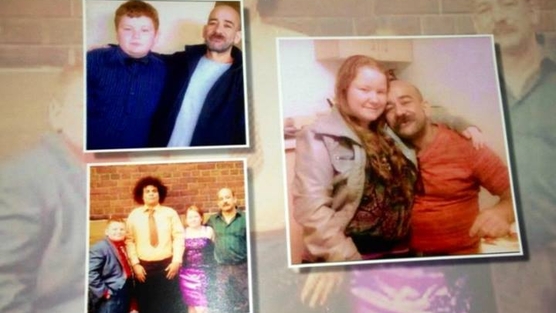by Muriam Salman
Rogerio Marques DeSouza, an undocumented worker, died an untimely death. However, the discrimination he faced due to his immigration status did not end with his passing.
At 49, Rogerio, the father of three teenage children, had been fighting colon cancer for over three years. As an undocumented migrant from Brazil, he was denied access to health care and had to hide his illness.
When his bosses discovered he was coming to work with a colostomy bag, they fired him.
Unable to keep up with his rent on top of the $100,000 he incurred in medical fees, he began working in a bakery and moved in with his children to save on rent. Shortly thereafter his condition quickly worsened and Rogerio quietly passed away at Toronto Grace Health Centre on January 18 earlier this year.
“We got a call from Rogerio’s relatives asking for support. They had been trying to get [the City of] Toronto to fund the funeral, as they didn’t have the resources themselves but were being denied because he didn’t have status,” Syed Hussan of No One Is Illegal – Toronto told BASICS.
“We wrote the city a strongly worded letter giving them 24 hours to resolve the situation, but they responded with an offer that was starkly inhumane.”
Using his immigration status as an excuse, the City of Toronto denied Rogerio’s low-income family the City’s funeral subsidy and instead offered to quietly burn the body. As Barbara Steeves, guardian of Rogerio’s three children, explained in an interview with the Toronto Star, “They said we must sign the release of the body to the city, so they can bury him in an unknown spot. And that’s the only way.”
Adding insult to injury, the treatment of Rogerio’s remains and his family come just in advance of the one year anniversary of Toronto City Council reaffirming its commitment to providing services without fear to undocumented residents on February 21, 2013. The reaffirmation was the result of two decades of community mobilization, and caught Toronto up to over 50 American cities with longstanding “sanctuary city” laws of the sort.
But as we mark this date, we must also step back and reflect on the work that has yet to be done.
“Seeing that the City bureaucrats weren’t going to live up to the promise of a Sanctuary City, we released the details of Rogerio’s case in a Toronto Star story and planned a delegation to Metro Hall,” added Hussan. “Minutes before heading in, we received a call from a private organization that wanted to pay for the funeral.
“After much deliberation the family accepted the offer, but insisted that we can’t always rely on charity. The overall structure must change.”
No One Is Illegal has since launched a Change.org petition calling on the Ontario government to make its services accessible to undocumented peoples.
A report released by the Solidarity City Network in December recommended that the City identify key city-funded services accessed by undocumented residents and develop department specific policies to ensure full access. Test-calling to hundreds of city agencies showed huge numbers of undocumented people being turned away and the city has still shown little sign of upholding its promise to make Toronto a fully functioning sanctuary city in practice, not just on paper.
Immigration status, for those fortunate enough to receive it, is becoming much more temporary and easier to lose. Sponsoring family members, getting refugee status, and going from temporary worker to permanent resident are all being choked off by the federal government. Systematically, racialized immigrants and refugee workers remain insecure, while paying income, sales and property taxes for services they are not entitled to use and to subsidize tax cuts for the wealthy in a climate of increasing income-inequality.
Poor health, isolation and repeated displacement are made worse with the criminalization of migrants through indefinite detention, raids, and surveillance in our communities. The result is that an entire section of our communities is living in fear — the same fear Rogerio felt three years ago when he first began experiencing symptoms, afraid of being reported to immigration authorities by the hospital. This indignity followed him into death, when his family found out the City hadn’t implemented its own policy.
Rogerio’s story sheds light on the high cost of denying our friends, neighbours and coworkers access to basic services based on immigration status. While it is the federal government that determines citizenship, the actual result of that denial would be far less dangerous were it not for provincial and municipal policies that place citizenship requirements on accessing basic services. Both the city and the province can enact changes to fill this gap and resist such blatantly racist and exclusionary Federal immigration policies, by refusing to deny health care, social housing, medical services, post-secondary education, and other important services to people based on citizenship.
Although the government does not keep track of its undocumented residents, estimates hover around 200,000 throughout the country . Every day, people like Rogerio resist the forces that seek to criminalize them. Enrolling their children in school, feeding their families, and accessing basic services – the day-to-day struggle to survive carries the ultimate risk. And in Rogerio’s case, surviving as an undocumented worker can carry the even greater cost of one’s own life.
Those of us working and living with status have nothing to lose and much to gain by standing alongside people like Rogerio. Let’s end these divisions imposed amongst working people and struggle for “Status for All.”
Comments
